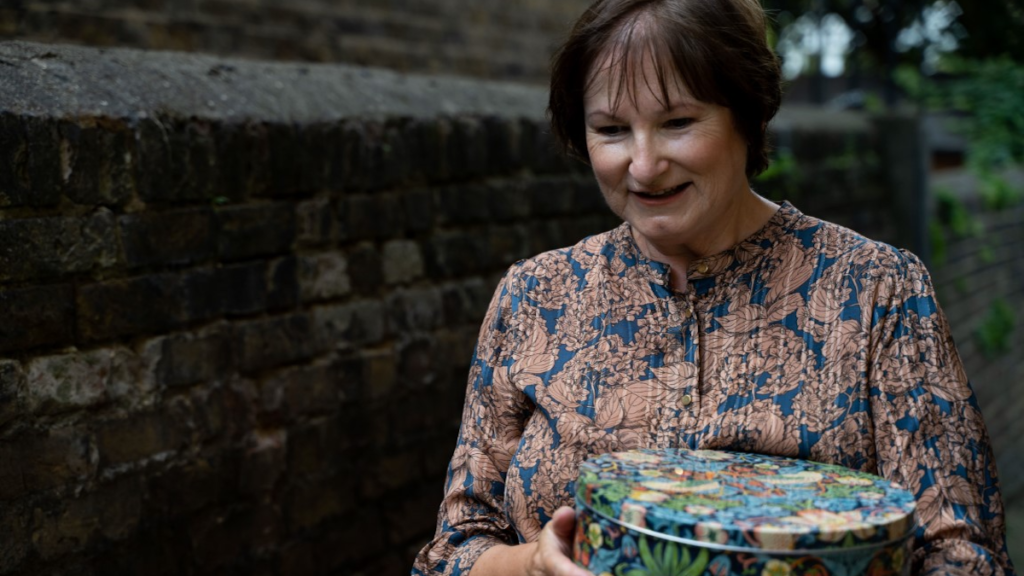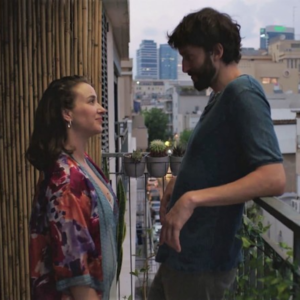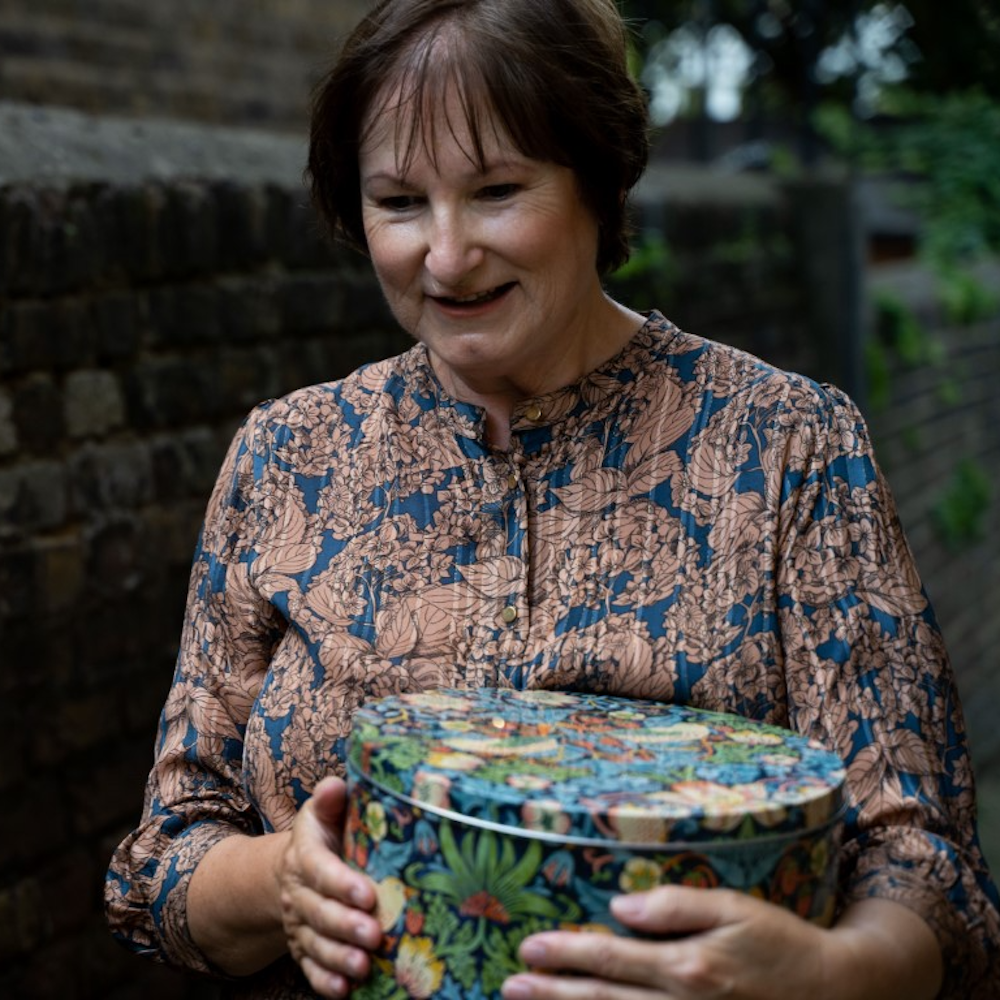Two Short Nights Collaborations: Ella Moorhouse on Bodies in Motion
Published January 27, 2022

This year, Two Short Nights Film Festival has had the privilege of working with a number of creative collaborators, including Young Audience Panel member Ella Moorhouse.
In this collaboration, Ella offers her critical eye over two films from Short #2: Bodies in Motion, a collection of shorts that explores our relationships with our bodies, how we connect through them, and the stories they tell. In this review, Ella focuses on the nuances between films ‘From a Strange Land’ and ‘Crumbs.’
Ella Moorhouse studied Film Studies at Exeter College and is an aspiring screenwriter. She is an active member of Exeter Phoenix Young Audience Panel and has curated season for Studio 74. She lives by the sea and currently runs her own business selling vintage clothes.
Let Them Eat Cake: Food and The Body
By Ella Moorhouse
Even the most arbitrary of rituals can say a lot about ourselves. Films of opposites, Caroline Steinbeis’ ‘From A Strange Land’ and Maya Zaydman’s ‘Crumbs’ revolve around the politics and inner turmoil of the most simple action of sharing cake, which in turn reveals something about our bodies and what they mean to us.
The modern silent film ‘From a Strange Land’ shows us how our bodies can create whole private worlds and the inevitable pain of them being exposed. We open on the scene of moving-in day, boxes being ripped open, the bare legs of a child running through the barren landscape of a newly emptied house. Immediately, we’re juxtaposed with the knick-knacks of a different dimly-lit house: old framed photographs and vintage make-up canisters, which introduces us to our main character, Margaret, an older woman with a penchant for William Morris pattern and golden retrievers.
Within the first minute, we are presented with the binary opposition of freedom vs restraint between the two households, the chaotic abandonment of the younger family and the quiet solitude of the single retiree. This contrast is further explored through the turning point of the revealing of Margaret’s housewarming gift; a cake, exquisitely baked and decorated with flowers.

In Zaydman’s ‘Crumbs’, our gaze is shifted into how our bodies can trap us in our search for comfort and pleasure
Despite her hours of work, Margaret quickly returns the lid of the tin, obscuring it from view. Here we have a portrait of a woman battling her own freedoms, seen when she anxiously decides whether to leave the top button of her blouse unbuttoned, trying to appear relatable to her new neighbours. A homemade cake represents the epitome of pleasure and allowance, however Margaret denies herself this indulgence and gives her enjoyment away; the hours of unseen preparation to create this beautiful gift represents her inner tussle with her relationship with her appearance, and the need for perfection.
Meanwhile, next door could not be more different. The father, only wearing a cardboard box on his head, pretends to be a monster; the mother, also naked, laughs from the sofa. Whilst bizarre and absurd from the outside, the ability to reveal their true unclothed selves to each other shows their bond; in their world, being comfortable in their own skin makes their house a home, even more than material possessions. Unlike Margaret, who yearns for the past, the young family live firmly in the present, enjoying this brief window of time before their son grows up and the embarrassment of unclothed skin inhibits his freedom. A crescendo builds as Margaret, carrying her talisman of the cake, walks next door, emphasised by the jump cuts between squealing of laughter from the bacchanal scene inside the house and the quiet hush of the street. After ringing the doorbell with no avail, Margaret tries through the back entrance, crossing the threshold in this ‘strange land’, and stumbles across the bizarre scene. The climax is marked by her dropping her gift; the destroyed cake representing the destruction of not only the young family’s private world by an outsider but Margaret’s quiet life being viscerally challenged. After the Adam and Eve moment, Margaret gingerly leaves a biscuit that survived the fall; an olive branch that suggests that all playfulness is not lost. Both households are stunned by the hilarity of what they have just experienced, and despite their differences, they have started the journey of learning to empathise and understand each other, even beyond the end credits.

The modern silent film ‘From a Strange Land’ shows us how our bodies can create whole private world and the inevitable pain of them being exposed”
Where ‘From a Strange Land’ shows us the beauty and freedom our bodies can create for us, in Zaydman’s ‘Crumbs’, our gaze is shifted into how our bodies can trap us in our search for comfort and pleasure. We open on the arresting image of a couple in an intimate embrace, the woman suggesting warmly, “There’s cake”. We cut to the domestic scene of the couple sitting eating a homemade cake out of its baking dish. In this short exchange, our first assumptions of the nature of their relationship are challenged. The woman, Noa, played by Maayan Turgeman, asks, “So what’s up? How are you?” suggesting that they are friends, however her short white slip and kimono reveals the sexual nature of their relationship. The man, Yoel, played with cool detachment by Nir Shlomo, deflects her question, instead remarking about the cake, “Hang on, this is really good”. Already the power dynamics are at play. Noa’s attempts to normalise and domesticate their relationship are shut-down; not only is the cake “really good”, but the casual, pleasure-focused type of relationship that they share is too good not to spoil.
Suddenly, Yoel’s phone rings, and he answers it with, “Hey babe”. The full extent of their situation is revealed; they are not only friends with benefits, but Noa is Yoel’s secret mistress behind his steady girlfriend’s back. As soon as Yoel answers the phone, Noa’s body language changes; she plays with her hair and picks at the crumbs of the cake. Throughout the film, the cake represents the boundaries Noa has failed to establish; she has spent hours making this cake to share this man, only for her to be left with eating the crumbs.
Cake is not nourishing and is not sustainable to eat everyday; through Yoel’s eyes, Noa is a treat to indulge in every once in a while, whilst Noa changes herself and her tactics constantly to try and win Yoel over, keeping her life on hold until he wants her. However, Zaydman excels at painting a real portrait of modern womanhood, consent and sexuality. Noa initates sex, calling Yoel “beautiful”, and whilst things are going well, Yoel withdraws his consent, stating “maybe we shouldn’t sleep together”. The lines are immediately blurred; is Noa being too pushy as Yoel is not expressing his full consent, or is Yoel confusing the boundaries of their relationship; if he’s not there for sex, what is he there for? After Noa’s attempts to create intimacy once again end in disappointment, we see a woman at the end of her emotional endurance; each tactic she has tried has failed, every intimate moment has been empty. Our alliances shift again when Yoel confides about his historical childhood trauma; despite Noa being sympathetic at first, she accuses him of not telling her sooner. Yoel retaliates with “this is always nice… why make things complicated, heavy”, mirroring his remarks on her cake at the beginning; he has compartmentalised her in his mind, and neglects to see that things have already become complicated for Noa. Afterwards, Yoel lies on her lap like a child, Noa’s sexual appeal has diminished for him and instead she become a comfort blanket, just like a piece of cake. After she tells him to leave, she picks at the remains of the cake, consuming the last crumbs of her old self and drawing up the fuel needed to rebuild her new one.
Catch Cake & From a Strange Land on 3 Feb as part of Two Short Nights Shorts #2: Bodies in Motion screening. Find out more at twoshortnights.com
